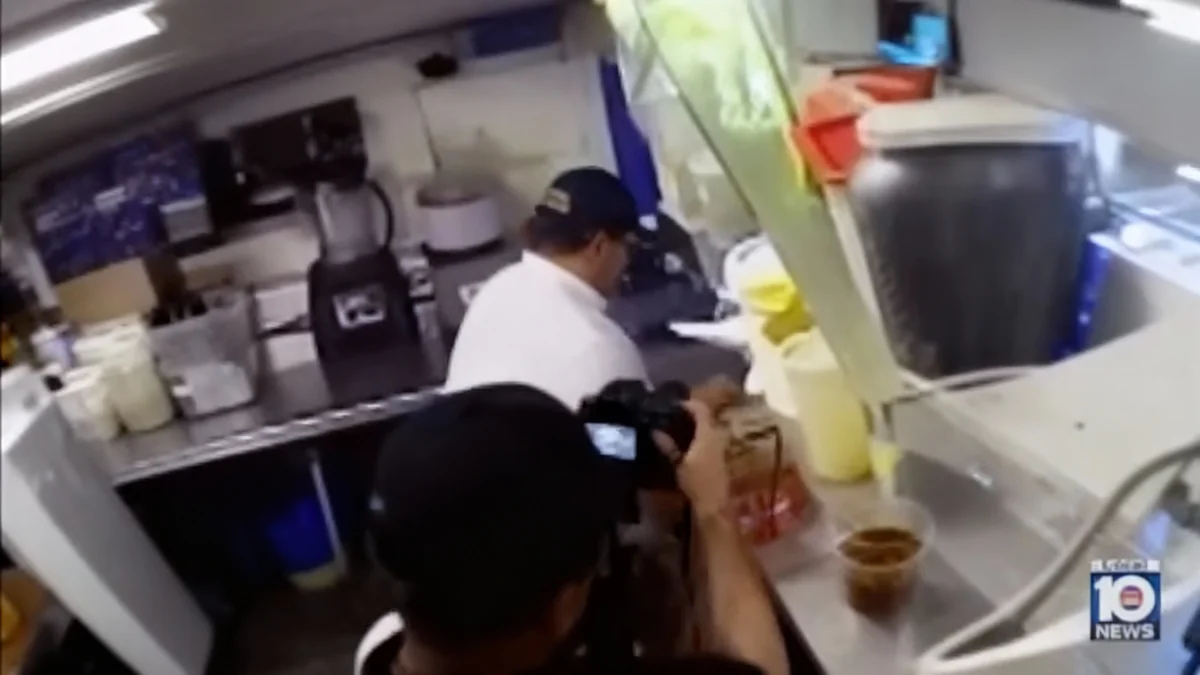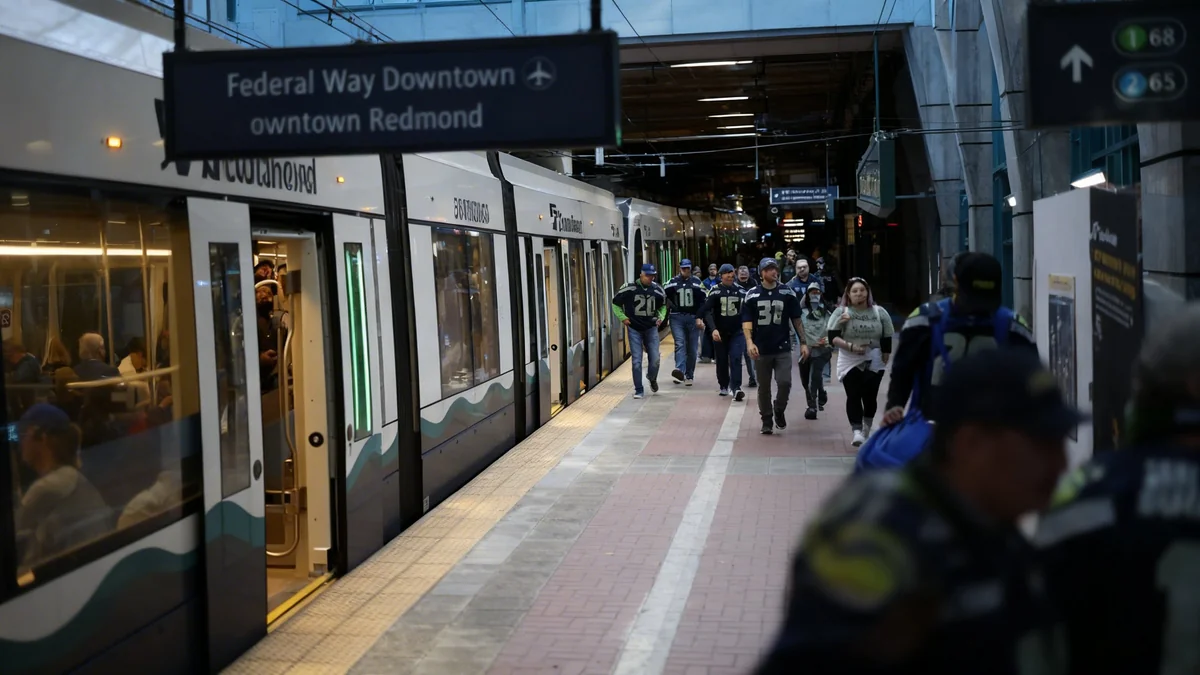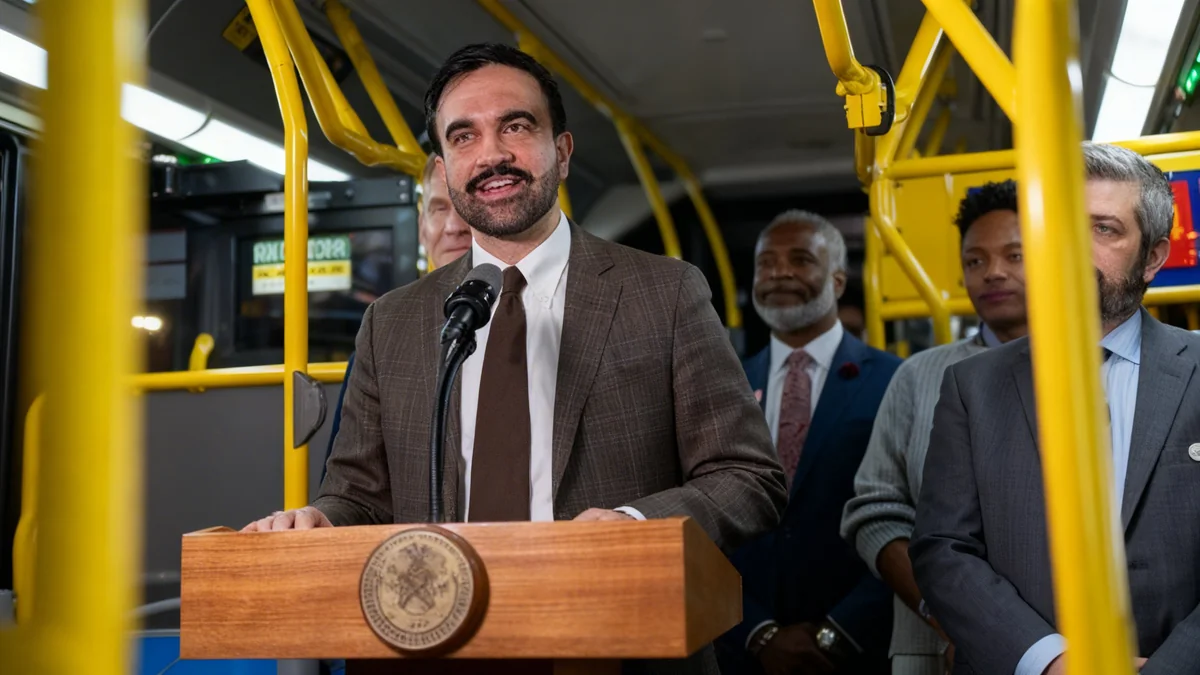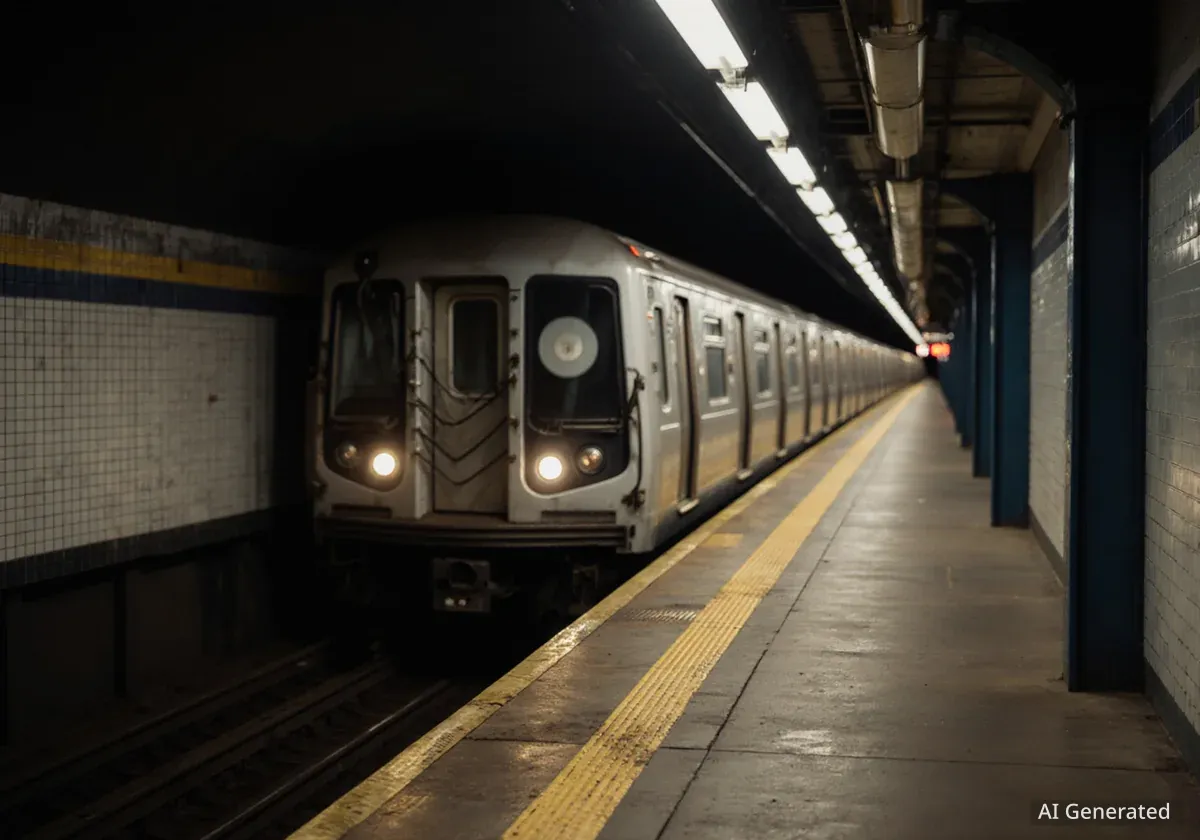Miami-Dade County has officially introduced its new Metro Express bus rapid transit system. The electric bus service, designed to offer faster travel for commuters, is set to begin operations on Monday. A ribbon-cutting ceremony took place on Wednesday to mark the launch of this significant public transportation upgrade.
Key Takeaways
- New Metro Express electric bus service starts Monday.
- Aims to reduce travel time from Florida City to Dadeland South.
- Features fewer stops and railroad-like crossing arms for efficiency.
- Represents a $300 million investment, compared to a $2-$3 billion rail extension.
New Electric Bus System Improves Commute
The Metro Express system is designed to connect residents from Florida City directly to the Dadeland South station. This new route aims to significantly cut down travel times for daily commuters. The county expects the electric buses to provide a more efficient and environmentally friendly option for public transit.
One of the key features contributing to faster travel is the strategic reduction in the number of stops along the route. Additionally, during peak travel hours, the buses will benefit from specialized railroad-like crossing arms. These arms will help the buses navigate busy intersections more quickly, reducing delays caused by traffic congestion.
Fast Fact
The new Metro Express system is an electric bus service, aligning with modern efforts to reduce carbon emissions and promote sustainable urban transportation.
Addressing the Transportation Surtax Debate
The launch of the Metro Express system comes after years of public discussion regarding the use of a half-penny transportation surtax. Voters approved this tax with the expectation that the funds would be used to extend the Metrorail south from Dadeland Mall. However, the county opted for a bus rapid transit system instead.
Former Miami-Dade County Mayor and current Rep. Carlos Gimenez addressed this decision during the ceremony. He explained the practical considerations that led to the choice of a bus system over a Metrorail extension.
"You either got this, or you got nothing," said Rep. Carlos Gimenez. "You were never going to get rail, because you don’t have the ridership and the federal government was never going to fund us for rail here."
Cost and Timeline Differences
Rep. Gimenez highlighted the substantial cost difference between the two options. A Metrorail extension would have been an estimated $2 billion to $3 billion project. In contrast, the Metro Express bus system represents an investment of approximately $300 million. This significant cost disparity played a crucial role in the county's decision-making process.
Beyond the financial aspect, the timeline for implementation was another critical factor. According to Gimenez, a Metrorail extension would have taken years of engineering and construction, meaning it likely would not have even started by now. The bus rapid transit system offered a much quicker path to providing improved public transportation services to residents.
Background Information
The half-penny transportation surtax was approved by Miami-Dade County voters to fund transportation improvements. The debate over how these funds should be allocated has been ongoing, with many residents initially hoping for a Metrorail extension.
Benefits of Bus Rapid Transit
Bus rapid transit (BRT) systems are often seen as a cost-effective and flexible alternative to traditional rail systems. They can offer many of the benefits of rail, such as dedicated lanes and priority at intersections, but with lower infrastructure costs and faster implementation times.
- Reduced Travel Times: Fewer stops and traffic priority mechanisms mean quicker commutes.
- Cost Efficiency: Significantly less expensive to build and maintain compared to rail.
- Flexibility: Routes can be adjusted more easily to meet changing demand or address new developments.
- Environmental Impact: Electric buses contribute to reduced air and noise pollution in urban areas.
The new Metro Express is expected to serve a large segment of the population, particularly those in the southern parts of Miami-Dade County. It offers a modern solution to long-standing transportation challenges in the region.
Looking Ahead for Miami-Dade Transportation
The launch of the Metro Express is a significant step in Miami-Dade County's ongoing efforts to enhance its public transportation network. While the Metrorail extension remains a topic of interest for some, the county has moved forward with a practical and implementable solution.
Officials anticipate that the new electric bus service will quickly become a vital part of the daily commute for thousands of residents. The focus on efficiency, speed, and environmental sustainability positions the Metro Express as a key component of the county's future mobility plans.





